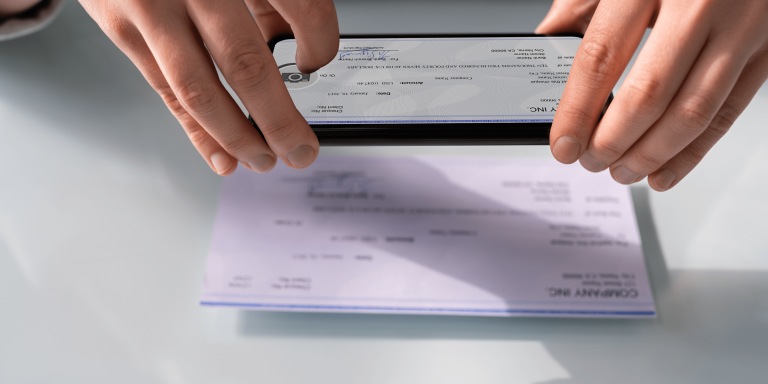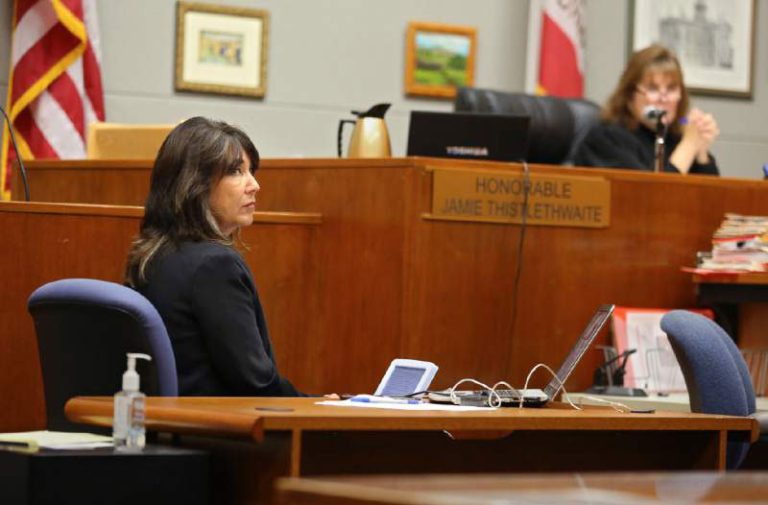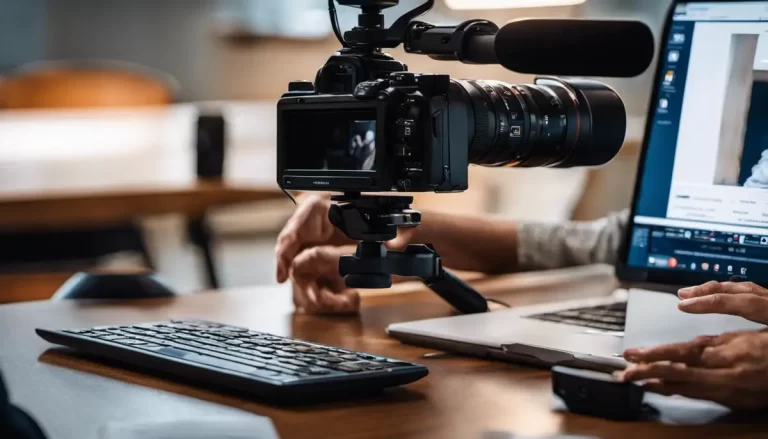Lighting, camera, deposition! Have you ever fought a court battle when every word and deed matters? If you have, you know video depositions are difficult. These recorded testimonies can make or break your case, so you must be prepared and know what to do (and not do) at this high-stakes event.
Video depositions and their value will be examined. We’ll also offer video deposition behavior guidelines and preparation advice.
What is a Video Deposition?
Imagine a legal dispute where you need to gather evidence and witnesses. Here come video depositions. A video deposition is a recorded interview or statement given under oath by a witness or litigant. Video depositions capture body language, facial expressions, and tone of voice as well as words.
Set up cameras and recording equipment to record every deposition word. This visual record is useful for trial preparation and evidence presentation. Video depositions allow attorneys to observe witness behavior, identify inconsistencies, and provide compelling testimony to influence judges and juries.
Video depositions can express emotions that writing cannot. Gestures, hesitations, sighs, and smirks can determine a person’s demeanor during questioning. These subtleties can reveal credibility and influence witnesses’ perceptions before key decision-makers. Video depositions are more real than textual ones because they capture audio and video simultaneously. They accurately portray events while allowing viewers (including potential jurors) to make their own conclusions based on firsthand perceptions rather than black-and-white transcripts.
Why are Video Depositions Important?
Video depositions provide crucial evidence and testimony that can change a case. Attorneys benefit from these recorded depositions because they preserve witnesses’ words, tone, and body language. Preserving witness testimony is a major benefit of video depositions. Traditional printed transcripts may lose tone of voice and facial expressions, impacting witness interpretation. Video depositions record non-verbal signs in real-time, helping judges and juries assess credibility.

Video depositions also improve legal teamwork. Attorneys who missed the deposition might check recordings at their convenience to learn about witness conduct. Using diverse viewpoints on important witnesses helps lawyers create stronger cases. Video depositions capture verbal and nonverbal signs that printed transcripts miss, making court processes more transparent and accurate. They are crucial to presenting compelling evidence to judges and juries.
Dos and Don’ts During a Video Deposition
It’s important to follow specific video deposition rules to ensure a smooth and effective process. Follow these key guidelines:
Dress correctly for deposition. Dressing professionally shows respect for the legal process and establishes your credibility as a witness.
Be mindful of body language. Video depositions reveal much through nonverbal cues. Keep proper posture, look at the camera, and don’t fidget.
Listen carefully before answering. Before answering, make sure you understand each question. This will help you communicate clearly and avoid misunderstandings.
Don’t reveal needless info. Answer the questions asked without digressing or adding irrelevant details.
Maintain composure during the deposition. You’ll probably feel worried but try to be calm. Stress can be relieved by deep breathing.
Do not dispute with opposing counsel or defend yourself when asked difficult questions. Remember that video depositions are for facts, not arguments.
Following these video deposition dos and don’ts can help you show yourself well and contribute to the legal proceedings.
Preparation for a Video Deposition
Preparation is crucial for video depositions. Being ready can make or break your argument. Before your video deposition, follow these critical steps:
Start with the case details. Examine witness statements, medical records, and incident reports. Know the case’s facts to answer deposition questions convincingly.
Talk to your lawyer about strategy and questions. Your attorney can advise you on how to present your case and prepare you for opposing counsel’s surprises.
Mastery comes from practice! Think about practicing depositions with your attorney or employing a witness prep agency. These simulations can help you practice answering questions under pressure and boost confidence.
Dress correctly for the video deposition. Even though you’re working remotely, dressed professionally adds seriousness and authenticity.
A reliable internet connection and working equipment will help you communicate during the video deposition. Test video conferencing software before the event to avoid technical issues.
Tips for Conducting Yourself During a Video Deposition
Video depositions require professionalism and composure. This advice will guide you through the procedure. Dress correctly for deposition. Consider it an official meeting even though you’re at home. Respecting the process and dressing professionally builds credibility.
Look at the camera. This will connect viewers and listeners to your testimony. Do not look around or let distractions distract you.
Speaking clearly and confidently. Properly pronounce your words for playback clarity. Slow down and gather your thoughts before responding to questions.
Fourth, observe body language. Sit up straight and appear calm but attentive during the deposition. Try not to fidget or make distracting gestures while speaking.
Fifth, listen to each question before answering. Interrupting or talking over others throughout this procedure could cause confusion or miscommunication.
Remember, silence is OK! Pause briefly before answering each question to gather your thoughts and answer concisely without rambling.
Common Mistakes to Avoid During a Video Deposition
During a video deposition, avoid typical blunders that could hurt your case. Avoid these mistakes to give a strong testimony that tells your experience.
Not understanding the question before answering is a common mistake. Listen closely and understand the question. Rushing to answer without knowing can confuse or mislead.

Answering questions by guessing is another mistake. Always recognize your ignorance rather than create assumptions. Guessing might damage your witness’s credibility and case.
Interrupting the attorney or raising objections can also weaken your testimony. Give everyone a chance to speak and address problems properly.
Avoid giving unneeded video deposition information. Answer the questions without digressing or adding irrelevant information.
Awareness of these typical problems and active prevention can help you present yourself better during a video deposition and improve your case outcomes.
Conclusion
Attorneys use video depositions to acquire vital evidence and testimony. The dos and don’ts in this article will help you have a successful video deposition.
Prepare for your video deposition by reviewing the case and rehearsing your responses. Dress professionally and pick a quiet, well-lit place.
Keep calm, speak clearly, and listen carefully before answering questions in the deposition. Do not interrupt or argue with opposing counsel, speculate, or guess when unsure, or disrespect anybody participating in the process.
Following these rules will help you appear confident and professional in the video deposition. This will strengthen your case and improve your chances of success.











